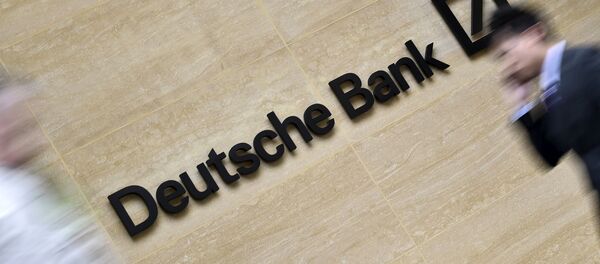ECB policymakers acknowledged that economic "downside risks had clearly increased," in minutes from a European Central Bank July meeting released on Thursday. It added that shaken investors acting more cautiously following the UK's shock June referendum result, has resulted in "a significant decline in government bond yields."
"The uncertainty following the UK referendum was, in large part, of a political nature and due to the lack of clarity about the new relationship between the UK and rest of the EU.
"The uncertainty of the situation itself could affect the global economy in deeper and less predictable ways."
However, in preparing a solution to try and bolster investor's fears, the banking council warned this ongoing confusion means that it shouldn't be "fostering undue expectations" of interventionist policies.
The minutes indicate that the ECB considers it too soon to discuss such measures, as they want to wait until the extent of the economic disruption from the Brexit vote becomes clearer.
ICYMI: Just one of many reasons why a Quitaly would be worse than a Brexit. ECB’s holdings by country… KCN pic.twitter.com/duVTJxrKR5
— Driehaus (@DriehausCapital) August 13, 2016
However, there is still little indication from the UK government on when that might be.
UK Prime Minister Theresa May has so far refused to say when she will invoke Article 50 of the EU Lisbon Treaty, which is needed to trigger the two-year process to leave the EU.
She has been urged to help end swirling speculation on the state of the EU-UK relationship and current trading deals.
However, government sources have told the British newspaper the Sunday Times, that so unprecedented was the Brexit vote, that the government does not yet have the necessary infrastructure to handle the transition. May has created a new Brexit department from scratch to handle the negotiations, but it is reportedly not ready or fully staffed.
"They don't have the infrastructure for the people they need to hire.
"They say they don't even know the right questions to ask when they finally begin bargaining with Europe," the source told the newspaper.
The ECB did note that the fallout from the UK's Leave vote has not been as tumultuous as some feared.
"Money markets had continued to function smoothly…the level of stress had been contained [and] financial markets had weathered the initial spike in volatility…with encouraging resilience."
It added that the UK itself has bared the brunt of the financial shock.
"The impact of the referendum was perceived to be geographically confined and to affect mainly the United Kingdom."
However, share prices for financial companies are still volatile and below expected levels.
Now Moody's ratings agency says UK economy to slow down but NOT close to recession. Didn't they predict Brexit gloom/doom pre-June 23?
— Andrew Neil (@afneil) August 18, 2016
Although the ECB has thus far been unwilling to say what kind of changes it might make in response to Brexit, current monetary policy is already contributing to just sluggish growth at best.
These include the bank buying around $90.5 billion of securities a month under its stimulus programme, also known as quantitative easing, in addition to offering banks cheap loans.
Through putting money into the financial system, the ECB hopes to boost inflation to its target of just under two percent.
However, many eurozone economies have yet to see concrete benefits to their economic outlooks as a result.
The ECB's 25-member governing council is preparing for another meeting to discuss further economic options on September 8th.





